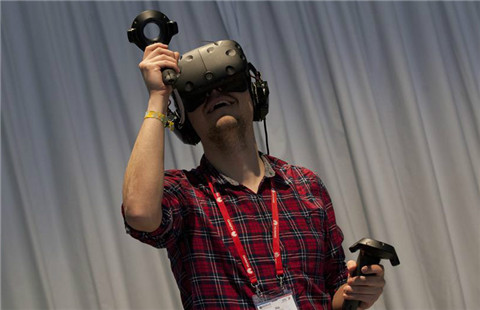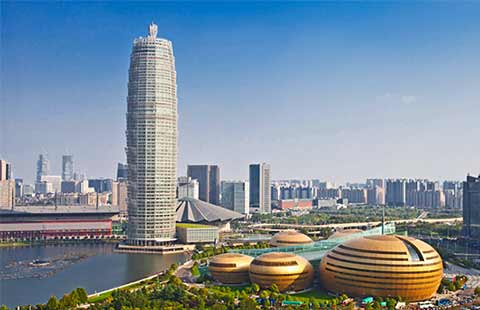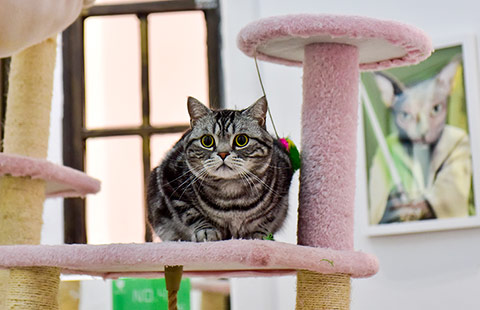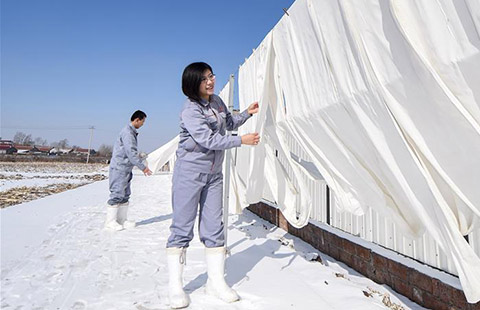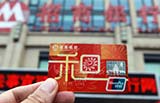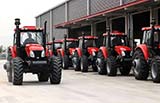Olympic ideal helps companies go global
(chinadaily.com.cn) Updated: 2012-09-12 16:39Host: Just now we talked about the overseas alliance, we also know that the alliance has established an "accelerator" overseas to help Chinese enterprises. Could you elaborate on the "accelerator" and its outlook?
Feng: The aim of setting up an "accelerator" is simple, it is to help Chinese firms and their local partners get to know each other before the actual "marriage".
Overseas M&As without mutual understanding is risky and many previous cases have failed. So why not get to know each other first?
We seek large scale and high end local property developers and tell them some good Chinese guys are coming and there will be more Chinese coming afterwards. Like the Wangjing area in Beijing, initially just a dozen of South Koreans settled down there, now there are about 50,000 South Korean people living there.
The developers, after learning the fact, are very happy and want to form a partnership. That's how the Chinese brands accelerator was born; it is to serve Chinese firms.
These developers are also eager to see Chinese brands succeed as established Chinese brands will rent larger rooms or buy properties, so these developers are more than happy to offer help.
So we got ourselves local partners and that's a win-win situation. Chinese firms then will hire people, create jobs and pay taxes, thus boosting the local economy as well as China's economy. Every party is happy with this result.
Host: Is there any fruitful cooperation between firms within the alliance?
Feng: Sure, there are a lot of examples. Since the firms are in different industries, they face no competition and offer each other help and resources. It's totally different from the rules in the popular game Mahjong in which whoever offers other party help will jeopardize himself.
In our alliance, we follow the Olympics model, we are in different industries and have no conflict, so we can help each other.
If you go to my company, Aigo, you will find that the waters and soft drinks are all from Huiyuan, you may not even know that Huiyuan, the juice producer, also produces water. The companies within the alliance all support Huiyuan and Huiyuan in turn offers us favorable prices.
The costs in sales channels and advertising could thus be saved and the alliance can serve as a base for companies to improve their product quality before they explore the market.
These are just trifle things. Take Gree for example, we found that Gree air conditioners are of very good quality, they OEM for Daikin of Japan. Gree is not in a suitable situation to tell other people about this, but now that we within the alliance know that, we do not have to pay extra money for Daikin, we go directly to Gree. Huiyuan bought over 1,000 Gree air conditioners at one time.
So we trust each other. And companies are very cautious about their product quality. Because once there is something wrong with your product, you will annoy everyone else in this alliance. So it's kind of like a group for students, we get really close and share many things.
There is a company in the alliance, Tianyu Group in Lijiang, Yunan province, its founder is a young man from the Naxi ethnic group and his name is He Xianghong. He acquired 16 failing companies in Lijiang and offered former employees better treatment. He also got many pieces of land but did not know what to do with them.
Then another firm in the alliance, a concrete producer in Daqing who has ample amount of capital, cooperated with Tianyu Group to open hotels. Lijiang aims to build itself into a cultural tourism city, introducing many unique from its culture to the world. So they have some hotels featuring cultural tourism.
Tianyu Group did not have enough capital, so it cooperated with the firm in Daqing. They don't have much experience in management, so they invited another firm from Xi'an, also a member of Aigo's alliance, Zuoyouke, to offer such service. In this way, Chinese people in different fields can help each other, support each other.
In fact every individual Chinese is excellent, we've got so many Olympic gold medals, but most of them are for individual competition. Almost all the games requiring skills were won by Chinese, we may not be so competitive in physical strength, after all, China has been a farming country for the past 5,000 years and we haven't been chasing lions and tigers for sports for a long period.
But talking about skill and intelligence, Chinese are good, like in the games of diving, shooting and gymnastics. Since practicing skills require a lot of hard work and Chinese are willing to work hard, we got many gold medals. But unfortunately, we did not get any gold medals in group events.
We should learn from European countries and the US, they play Bridge and stress cooperation, but we have played Mahjong for a long time.
Host: So I see that companies in this alliance are very supportive of each other and work as a team in a healthy and positive way.
Feng: Sure, work as a team in a healthy and positive way. We do not only form teams within China, we also form partnership with those countries and regions which are friendly to China.
Once good Chinese brands enter into a market, they will create jobs and hire local people. Like foreign companies in China hiring Chinese, we Chinese firms also hire local people in overseas markets. We also learn from the Olympic model's "zero tolerance" on tax evasion. Once Chinese firms create jobs and pay taxes, the local people and government will naturally support us.
- Huawei grows consumer products range across Western Europe
- Xiaomi introduces video call app with US firm
- Asian woes take toll on AIA Group
- Regulator quashes registration-based IPO rumors
- Foxconn casts doubt on Sharp deal
- Products presented at MWC in Barcelona
- Industrial diversity pays benefits for local economy
- 'Invented-in-China’ products to the fore at MWC
